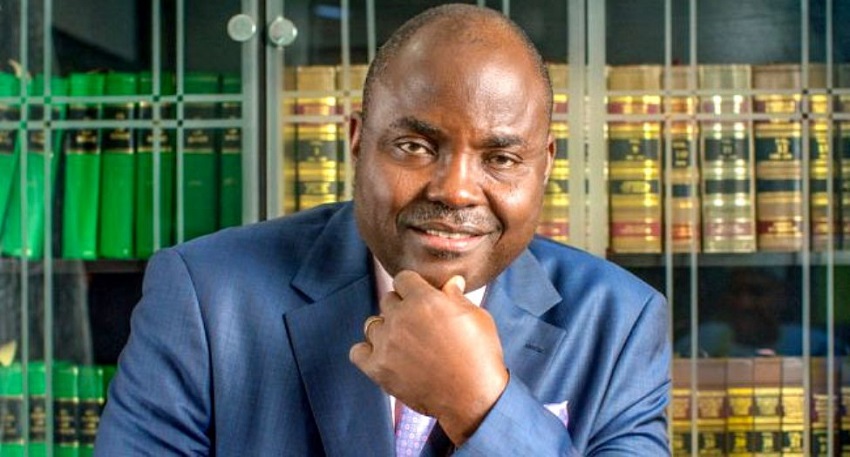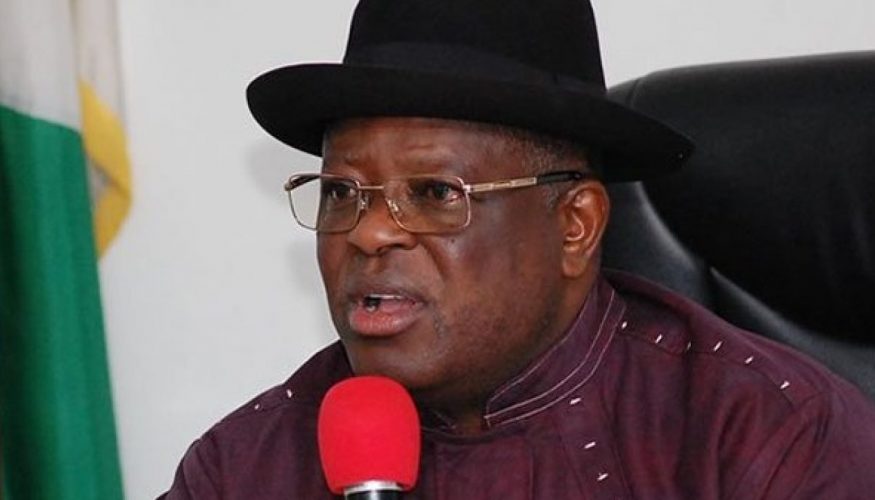IS A PRESIDENT, GOVERNOR PROTECTED IF HE BREACHES CONSTITUTION?
BY JIBRIN OKUTEPA
MUST GOVERNORS, DEPUTY GOVERNORS, PRESIDENT AND VICE PRESIDENT ENJOY IMMUNITY IF THEY BREACH NIGERIAN CONSTITUTION?
It is not in dispute that section 308 of the Nigerian constitution 1999 as amended granted immunity to those named therein. The section provides that:
“Notwithstanding anything to the contrary in this Constitution, but subject to subsection (2) of this section –
(a) no civil or criminal proceedings shall be instituted or continued against a person to whom this section applies during his period of office;
(b) a person to whom this section applies shall not be arrested or imprisoned during that period either in pursuance of the process of any court or otherwise; and
(c) no process of any court requiring or compelling the appearance of a person to whom this section applies, shall be applied for or issued:
Provided that in ascertaining whether any period of limitation has expired for the purposes of any proceedings against a person to whom this section applies, no account shall be taken of his period of office.
(2) The provisions of subsection (1) of this section shall not apply to civil proceedings against a person to whom this section applies in his official capacity or to civil or criminal proceedings in which such a person is only a nominal party.
(3) This section applies to a person holding the office of President or Vice-President, Governor or Deputy Governor; and the reference in this section to “period of office” is a reference to the period during which the person holding such office is required to perform the functions of the office”.
This section is the section that has castrated law enforcement agencies and other persons with good cause from filing and prosecuting some governors accused of or suspected of having abused their offices. In making the provisions for immunity as in the above section, it was the intention of the draftsman of our constitution that those who were granted immunity will be nationalistic and patriotic enough to pay due fidelity and undiluted respect for the constitution and will themselves not be agents that will violate the constitution with impunity.
The question I ask is, MUST A GOVERNOR, DEPUTY GOVERNOR, PRESIDENT AND VICE PRESIDENT ENJOY IMMUNITY IF ANY OF THEM DELIBERATELY BREACHED NIGERIAN CONSTITUTION? It is submitted that they should not. I do not see the basis to accord immunity protection to any of the beneficiaries of immunity if any knowingly breaches, violates or undermines the constitution.
Writing on the issue a retired jurist of our Apex Court opined to me that: “The Governor in his Oath of Office, consistent with Chapter II of the Constitution, undertakes to fight and eschew corruption in all its ramifications.
The oath is in the Schedule to the Constitution. The Code of Conduct for Public Officers is part of the Constitution, like s. 308 of the Constitution which must be read purposefully and holistically.
Can the Governor, reneging on his oath and violently violating other provisions of the constitution, plead the protection of s.308 of the same constitution? He who comes to equity must come with clean hands. Governor cannot, while violating the constitution seek protection of the same constitution. St. Paul: “He who does not acknowledge the law can be adjudged without it”
The learned jurist queried, “What’s the extent of immunity offered by s.308 of the Constitution? Can a Governor e.g. of Benue State who commits a crime or civil wrong in Kogi or Nasarawa State, or even FCT, plead the immunity extra territorially? Each State in a Federation is sovereign and autonomous of the other and the Federal Government. When a Governor is charged under a federal enactment for a federal offence, does s.308 immunity avail him?
We need to interrogate these questions. While it is true that time does not run against the state in criminal prosecution and that by the same section 308 of the constitution limitation law is put in abeyance for civil proceedings, it cannot be seriously argued that during the period these people enjoy immunity, they can do all to cover up and cause vital evidence to be unavailable when they no longer enjoy immunity.
I think given the docile nature of our legislative houses and the fact that in most cases, our legislative Houses are just stooges of the executive arm of government, time has come to have a second look at the immunity clause in our constitution.
In Nigeria those who violate the laws always claim protection of the law. I do not see why a governor who is in fragrant violation of the constitution should be accorded constitutional protection of immunity. We seem to have insatiable appetite to accommodate wrongs in the guise of paying fidelity and obedience to this constitutional provision and then accord immunity to those who enjoyed immunity under section 308 of the Nigerian constitution even in the face of their gross violation of the same constitution.
We need to interrogate the culture of legal practice in Nigeria. We seem to pursuing abstract justice at the expense of justice that serves the interests of the society and humanity. Why should we advocate and argue in favour of immunity for those who have no regards for our constitution in the manner they loot our treasuries dry?
Instead of using law and practice law that enhances and promote social engineering, we seem to encourage utopian theories of law and then undermine societal equilibrium in aiding and abetting those who ought to be in jail.
- Mr. Jibrin Okutepa is a Senior Advocate of Nigeria.
To join our Telegram platform, please click here
COPYRIGHT 2022 CITY LAWYER. Please send emails to citylawyermag@gmail.com. Join us on Facebook at https://web.facebook.com/City-Lawyer-Magazine-434937936684320 and on TWITTER at https://twitter.com/CityLawyerMag. To ADVERTISE in CITY LAWYER, please email citylawyermag@gmail.com or call 08138380083. All materials available on this Website are protected by copyright, trade mark and other proprietary and intellectual property laws. You may not use any of our intellectual property rights without our express written consent or attribution to www.citylawyermag.com. However, you are permitted to print or save to your individual PC, tablet or storage extracts from this Website for your own personal non-commercial use.

